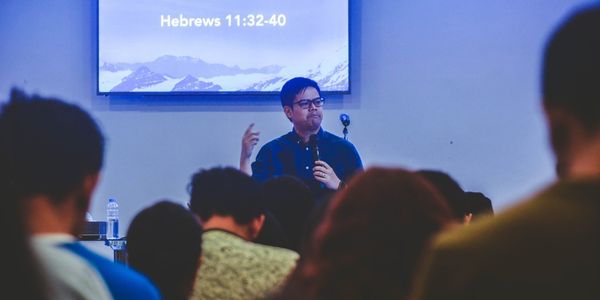Since I began my journey in theological education, I felt the need to explain the value of studying theology to different church folks and ministry leaders. People state different kinds of comments; Shouldn’t you spend your energy preaching the Gospel instead of spending time studying theology?
People lose their zeal to do Christian ministry once they come out of seminary. They become liberal in their thought once they complete their seminary education. These comments provided an opportunity for introspection regarding the manner in which theological education has been perceived for centuries.
My goal here is not to suggest an alternative method of theological education nor offer my critique on it. Instead, I would like to explore the opportunity with online theological education as a response to the chasm that exists between the church and theological education.
According to Keith L Johnson, the reason for this gap is due to the methodical shift of theological education during the course of history (Theology of Discipleship, 24-33). He highlights this by showing how early theologians were bishops and priests who were primarily responsible for the worship, teaching, and preaching of the church.
The medieval and modern periods saw the shift in theological education where universities came into the picture and the academic exercise of theology started to happen within a certain distance from the life of the church (Johnson, 24-27). I agree with Johnson regarding the reality that the church needs theology and theology needs the church.

Johnson’s book focuses on bridging that gap by seeking theological education as a form of discipleship while keeping the faith as a focal point of the content (Theology as Discipleship, 33-35). While cognitive elements are important, it would serve us well to relook in the context of discipleship.
There is a shift in context when it comes to online theological education. This shift of context is pivotal in understanding how to bridge the gap between theological education and the church. How does online theological education present itself as an opportunity for discipleship?
Context of the Online Learner
It is helpful to note that online learners are situated in a specific context. Their interaction with the online learning resources, peer learning portals, and tutors are mediated through the relevant context that they are situated in.
The curriculum that is formulated based on a discipleship model has the potential for formation when applied directly to the context that the learner is situated in. This provides an opportunity for the curriculum developers to focus on application and contextualisation-based content and assignments.
Context of the Online Tutor
Online education presents a unique opportunity for tutors. Online tutoring is quite often about facilitating the content instead of lecturing. This is an opportunity to journey along with the learners as a guide.
This journey can be characterised by providing intellectual stimulation in understanding the content, guiding the learners to spiritual formation, and providing pastoral care (the majority of learners are part-timers which brings its unique challenges) with the ultimate goal of discipleship.

Context of the Online Community
While community-building is a unique aspect of discipleship, it is important to genuinely admit that online community is a reality. While the community is often referred to as people who relate to one another in a physical space, it is important to know that a group of people exist and relate to one another purely within the online space.
It is important to recognise such communities from a perspective of discipleship and mission. The space of online theological education offers a platform to understand and relate to an online community.
Context of Ministry and Practice of Faith
While the online learners study theology situated in their own individual contexts, they are also part of a local church during their course of theological education. Their ministry to the church and their practice of faith within the context of the church occurs in co-relation with theological education. Although there exists proximity of space between the student of theology and the church, it doesn’t necessarily bridge the gap between theological education and the church.
However, it provides an opportunity for the learners to practice theology directly in the context of the church. This scenario helps the church to be benefitted from the theological learning of the learner and the learner’s theology is shaped by the context of the church.
Photo by Emmanuel Ikwuegbu on Unsplash; Photo by MD Duran on Unsplash; Photo by Mason Kimbarovsky on Unsplash







